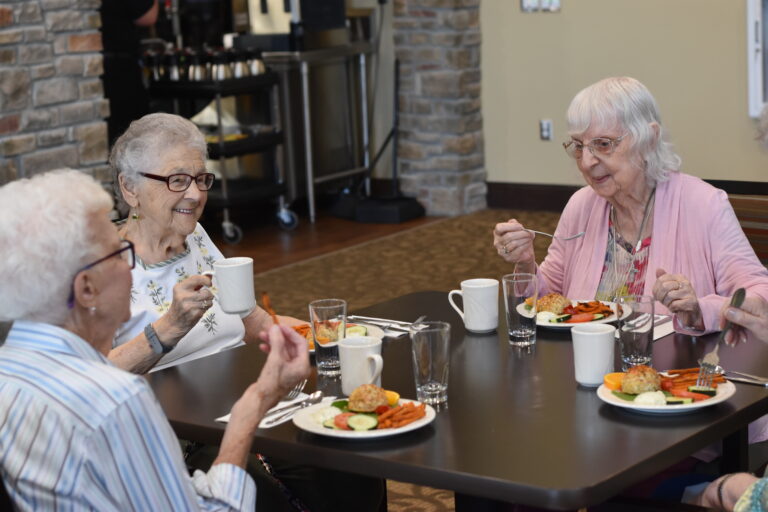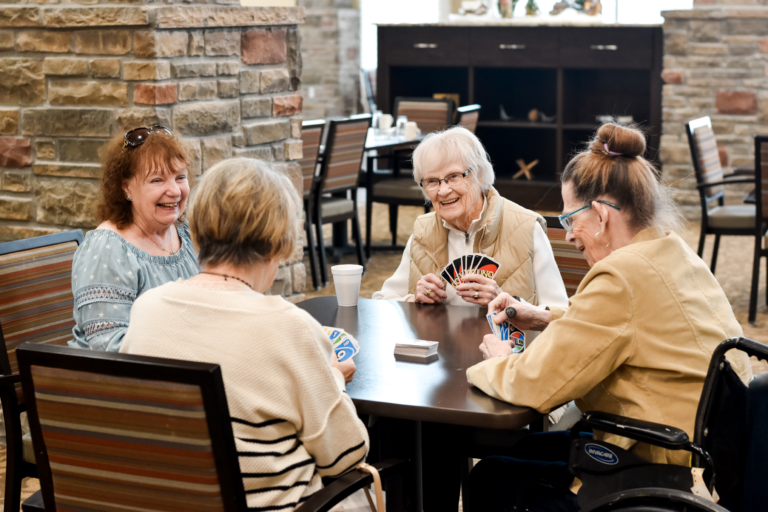
As emotional beings, it’s normal for humans to experience periods of sadness, loneliness, and grief in between stages of joy. Without challenging times, we wouldn’t grow or appreciate the beautiful moments of life.
However, feeling down for extended periods of time, losing interest in things that make us happy, or finding it difficult to concentrate can all be signs of depression – a serious but treatable medical condition in the brain that causes negative thoughts, mood, or behavior.
One in six people will experience depression sometime in their lives, and it can happen to people of any age, background, or ability. However, seniors have a higher risk of developing depression than other age groups, as they are more susceptible to social isolation, declining health, and loss of loved ones, which can lead to depression. COVID-19 has only exacerbated this risk for older adults, who remain highly vulnerable to serious complications from the virus.
While depression is not an inevitable part of getting older, there are common signs to watch for to ensure they get the support they need. We outline some of these signs below and provide insight from Jessica Anderson, a case manager in the long-term care industry, on why it can be challenging to identify depression in seniors and when it’s time to seek medical treatment that will allow them to live their golden years to the fullest.
Signs of Depression in Seniors
Like other mental illnesses, depression is a complex disease that can develop for many reasons, like biochemistry, genetics, or environmental factors. Unlike sadness or grief, depression is a chronic condition that can occur without a known cause. Many people cope with depression for most of their lives, while others develop it later in life.
The only way to know for sure if a person has depression is through a medical evaluation with a doctor, who may conduct physical exams, lab tests, psychiatric evaluations, or a combination of the three to diagnose depression and determine the best course of treatment for each individual.General symptoms of depression include:
– Feelings of hopelessness or helplessness
– Neglected personal care
– Loss of interest in hobbies, pastimes, or social activities
– Changes in weight or appetite
– Trouble sleeping
– Digestive issues
– Anger or irritability
– Loss of energy
– Reckless behavior
– Difficulty concentrating
– Increased use of alcohol or drugs
– Unexplained aches and pains
– Fixation on death or suicidal thoughts
This list of symptoms applies to seniors, but they are “less likely to say they are sad about something,” says Jessica Anderson, a case manager for a Medicaid program in Wisconsin that provides physical and mental health services to people of all ages. “Instead, they might give nonverbal cues, show signs of physical pain, complain more often, or have a decreased interest in their favorite activities.”
Anderson works primarily with seniors to determine their level of need through health and wellness assessments, which include depression screenings. From there, she assists them in finding in-home caregivers, therapists, assisted living communities, or other support.
Through her work, Anderson has observed many different causes of depression in seniors, but the loss of autonomy due to physical or cognitive decline “highly contributes to feelings of helplessness or worthlessness” that can trigger depression in older adults, she says.
Fortunately, many treatment options like medications or talk therapy exist to help seniors cope with depression. The sooner depression is diagnosed, the sooner seniors can begin treatment that will improve their quality of life.
Challenges of Identifying Depression in Seniors
Depression is already a difficult disease to recognize in ourselves or our loved ones, but especially for older adults who live alone and have limited access to healthcare due to finances, disabilities, or lack of transportation.
Seniors are also more likely to have chronic health issues like anxiety, Alzheimer’s, diabetes, cancer, heart disease, and Parkinson’s disease that mask – or even emulate – symptoms of depression. Urinary tract infections, for example, display similar signs of depression, which is why medical evaluations are important “to avoid speculation and rule out other possible health issues,” Anderson says.
One of the primary challenges of identifying depression in seniors, however, is that older adults are more reluctant to ask for help. This is compounded if a person has dementia or another illness that makes it difficult for them to communicate with others, making support networks all the more crucial for the well-being of seniors, she adds.
“Having a really good support network of family, friends, or caregivers is useful for seniors because they know them well and can pay attention to (changes in behavior),” Anderson says.Other ways that seniors can reduce their risk for depression is to develop healthy coping skills, stay active, eat healthy, exercise, spend time outdoors when they can, get enough sleep, and learn their family history of depression.
“(Learning a person’s risk for developing depression) early on is crucial in helping them so interventions can be put in place,” Anderson says. “Being proactive is huge for any diagnosis, but especially depression.”
Complications of COVID-19
Anderson acknowledged that the COVID-19 pandemic has exacerbated the risk of depression in seniors due to limited contact with loved ones, decreased access to health care, fear of uncertainty, and heightened health concerns, she says. This makes support networks even more crucial at this time, even if it means family members checking in with their loved ones virtually on a regular basis to provide support and watch for changes in behavior.
“Fortunately, people have been able to do distanced outdoor visits, but now with cold weather months, we’re going to have to get extra creative in how we ensure seniors are still getting the interaction and support that they need,” Anderson says.
At Edgewood Healthcare, we care about the health, safety, and well-being of seniors and their loved ones. Our team continues to follow strict COVID-19 guidelines in our communities while providing regular health visits through our robust internal health network to ensure seniors receive the support they need for their physical, emotional, and mental health.
We are also willing to do whatever we can to ensure seniors can safely connect with their families and offer a mitigated move-in process for new residents. If you have any questions or concerns, please contact us and our staff will happily assist you.
If you are a senior experiencing symptoms of depression and are concerned about your safety, call the toll-free 24-hour National Suicide Prevention Lifeline at 1-800-273-TALK or dial 9-1-1.




